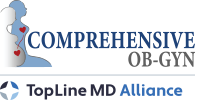
Comprehensive OB/GYN practices understand the importance of postpartum care and provide a range of services to support women during this critical period. These practices offer holistic care that addresses both the physical and emotional well-being of new mothers, ensuring a smooth transition to motherhood. Here are some aspects of postpartum care commonly provided by comprehensive OB/GYN practices:
1. Medical Check-ups: OB/GYN practices schedule regular postpartum check-ups to monitor the mother’s physical recovery and assess any potential complications. These visits typically include a review of the mother’s medical history, a physical examination, and discussions about any concerns or symptoms she may be experiencing. The healthcare provider may check the healing of any incisions, assess the uterus for involution, and address issues such as postpartum bleeding, infection, or blood clots.
2. Emotional Support: Postpartum care at comprehensive OB/GYN practices acknowledges the emotional changes and challenges that women may face after childbirth. Healthcare providers offer compassionate support and provide a safe space for women to discuss their emotions, concerns, and experiences. They may screen for postpartum depression and anxiety, offer counseling or referrals to mental health professionals, and provide resources to help women cope with the emotional ups and downs of early motherhood.
3. Breastfeeding Support: Many comprehensive OB/GYN practices have lactation consultants or specialized nurses who assist women with breastfeeding. They offer guidance on proper latch techniques, positioning, and managing common breastfeeding challenges such as engorgement, low milk supply, or sore nipples. These professionals are trained to identify and address issues related to breastfeeding and can help women establish a successful breastfeeding relationship with their babies.
4. Contraception and Family Planning: OB/GYN practices play a crucial role in discussing contraception options and family planning during the postpartum period. Healthcare providers offer information on various birth control methods that are safe and suitable for breastfeeding mothers. They discuss the pros and cons of different options, address any concerns or questions, and assist women in making informed decisions about their future pregnancies.
5. Recovery and Self-care Guidance: Comprehensive OB/GYN practices provide guidance on postpartum recovery and self-care practices. They educate women on proper hygiene, perineal care (if applicable), and pelvic floor exercises to aid in healing and regain strength. They may offer recommendations for postpartum exercise and physical activity, taking into account individual recovery timelines and any specific medical conditions. These practices also emphasize the importance of rest, good nutrition, and self-care practices to support overall well-being.
6. Continued Follow-up Care: Postpartum care at comprehensive OB/GYN practices extends beyond the immediate weeks after childbirth. They encourage ongoing follow-up appointments throughout the first year after delivery to ensure the mother’s and baby’s health and address any concerns that may arise. These visits provide an opportunity to assess the baby’s growth and development, discuss infant feeding, and address any postpartum issues or questions the mother may have.
Comprehensive OB/GYN practices recognize the unique needs of postpartum women and strive to provide comprehensive care that promotes optimal recovery and well-being for both the mother and the baby. By offering medical expertise, emotional support, breastfeeding guidance, recovery advice, and family planning discussions, these practices play a vital role in ensuring a positive postpartum experience for women.


